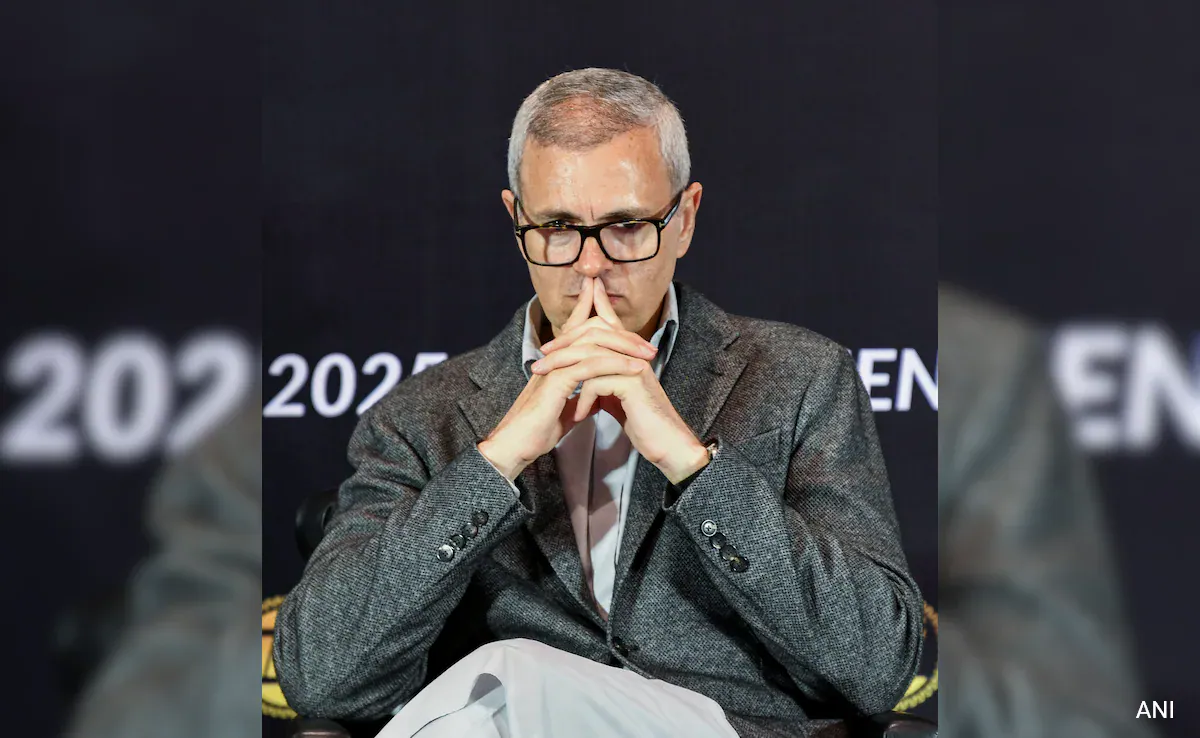As Tensions Rise, Statehood Talks Continue: The Perspective of J&K’s Chief Minister
In the aftermath of a terror attack in Pahalgam, Jammu and Kashmir’s Chief Minister Omar Abdullah has provided clarity regarding the ongoing discussions on restoring statehood for the region. On April 22, a tragic incident sent shockwaves through the area, leaving residents in fear. However, Abdullah has emphasized that this attack has not put a halt to the critical conversations concerning the political future of Jammu and Kashmir.
In an interview on Wednesday, Abdullah stated that these discussions remain active, asserting that he addressed the issue directly during a recent meeting of the NITI Aayog governing council. He highlighted his commitment to ensuring that the matter of statehood was placed firmly on the agenda, with a formal speech presented to the Prime Minister and all council members. This indicates a concerted effort to keep the dialogue alive despite the backdrop of violence.
The Chief Minister responded resolutely to inquiries about the impact of the Pahalgam attack on statehood discussions, affirming that the dialogue is still taking place. He noted, “If you were to take out the formal speech that circulated in the NITI Aayog meeting, you will find a categorical mention for return of statehood in that.” Abdullah’s remarks underline the resilience of the political process in the region, demonstrating his determination to focus on governance even during challenging times.
Restoration of Statehood: A Critical Need for Jammu and Kashmir
The significance of restoring statehood to Jammu and Kashmir cannot be overstated. Following the abrogation of Article 370 in August 2019, the region has been under central rule, a change that has resulted in numerous challenges including political disenfranchisement, economic instability, and social unrest. Many residents and political leaders believe that restoring statehood is crucial for both governance and restoring local political representation.
On this front, Abdullah has made it clear that he does not view the discussions on statehood as merely a formal process, but rather a vital step in the journey towards normalcy in the region. He stated, “So, the conversation around statehood has not stalled. The only thing I was unwilling to do was to use the special session of the (Jammu and Kashmir) Assembly to talk about statehood. But that does not mean the conversation has stopped.” This highlights a nuanced understanding of the political landscape, suggesting that while immediate talks may not have occurred in specific assemblies, broader discussions are actively ongoing.
The April 22 attack, which targeted civilians and armed forces alike, has understandably sparked concern in the region. Nonetheless, Abdullah has urged that policymakers must remain focused on long-term solutions rather than being sidetracked by acts of violence. He advocates for a sustained commitment to the dialogue surrounding statehood, which, in his view, is essential for restoring trust and stability within the community.
The Bigger Picture: Implications of Continuing Violence
While the persistence of political dialogue in the face of terror threats is commendable, it also raises questions about the broader implications of ongoing violence in Jammu and Kashmir. The Pahalgam attack exemplifies the persistent risk of terrorism in the area, which could potentially jeopardize the peace-building efforts and statehood discussions led by provincial leaders like Abdullah.
Furthermore, the regional dynamics play a significant role in shaping the discussions surrounding statehood. Given the historical context of conflict in Jammu and Kashmir, the path towards restoration involves not only local governance but also a comprehensive understanding of security, economic well-being, and community relations. The need for a collaborative approach among various stakeholders remains vital to advancing these discussions.
As per the report by NDTV, Abdullah’s remarks come during a pivotal time as the region grapples with the consequences of ongoing violence and its repercussions on political unity. While the statehood issue remains a focal point, there is also an urgent need for effective measures to combat terrorism and ensure the safety of citizens.
A Collaborative Future for Jammu and Kashmir
The road ahead for Jammu and Kashmir remains fraught with challenges, but Abdullah’s insistence on continuing the conversation about statehood is a hopeful sign for many in the region. Political leaders, civil society, and citizens must work together to navigate the complexities of governance amidst instability. The hope is that through sustained dialogue and proactive measures, the region can eventually achieve a state of peace and normalcy.
In summary, while the threat of violence continues to loom large, the commitment of leaders like Omar Abdullah to pursue statehood discussions is a critical aspect of the political landscape in Jammu and Kashmir. The emphasis on these talks amid turmoil conveys a strong message to both citizens and adversaries that the governance of Jammu and Kashmir remains resilient and forward-looking.
For more insights into the political situation in Jammu and Kashmir and the ongoing discussions about statehood, you can explore related articles on jammukashmir.com and politicalanalysis.com.
DISCLAIMER
We have taken every measure to ensure that the information in this article and on our social media platforms is accurate, verified, and obtained from reliable sources. For feedback or complaints, please contact us at info@hamslive.com.


